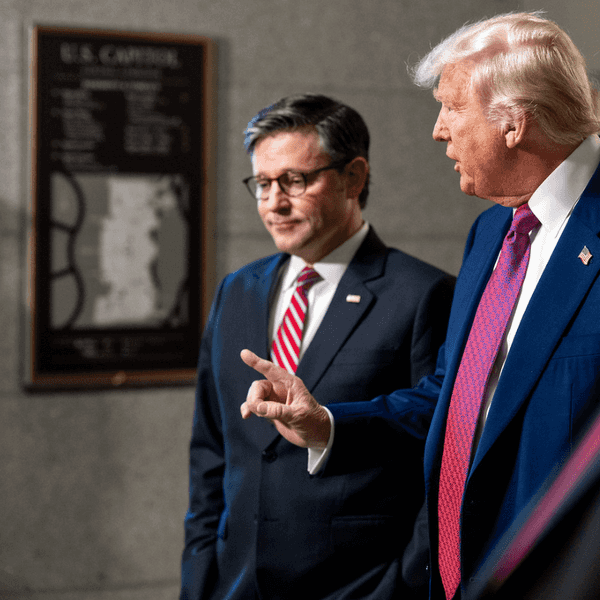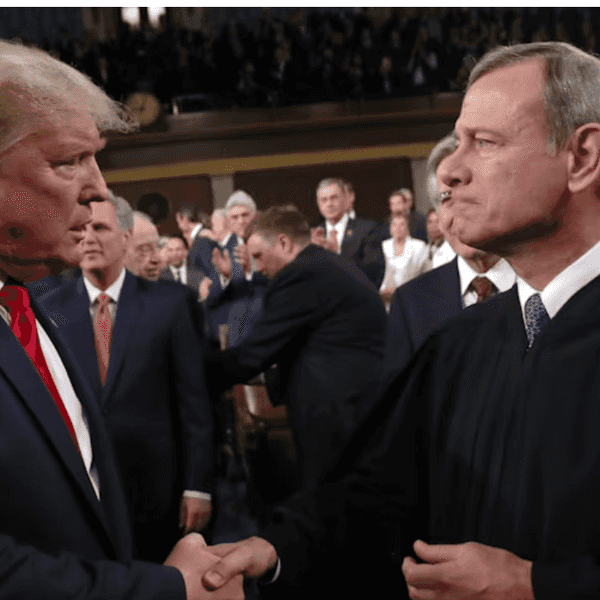In Latest Appeal, Trump Tries To Hide A Very Dangerous Secret

Donald Trump's Mar-a-Lago estate
Merrick Garland appointed a special counsel, Jack Smith, to take over the two criminal investigations of Donald Trump that are already underway. Smith is a former head of the Department of Justice’s public integrity division, and has been the chief prosecutor in The Hague at the International Criminal Court prosecuting war crimes in Kosovo since 2018.
The appointment of Smith as special counsel comes on the day after the DOJ filed its reply brief with the 11th Circuit Court of Appeals in the matter of Trump’s lawsuit that sought the order to appoint a special master to review all of the materials seized at Mar-a-Lago for protection under attorney-client or executive privilege. Judge Eileen Cannon had ordered that all the documents seized by the FBI could not be used by the DOJ in its criminal investigation of Trump until the special master review process was completed.
The DOJ appealed the order concerning the classified documents to the 11th Circuit, which quickly ordered that the DOJ be allowed to use the 103 folders of classified documents the FBI found in its search of Trump’s office and personal residence in its investigation and prosecution of Trump. The DOJ filed a second appeal asking that the 11th Circuit order that the department can use all of the documents recovered from Mar-a-Lago in its prosecution. Trump opposed the motion, and yesterday’s DOJ filing responded to Trump’s answer to the DOJ’s appeal.
The position Trump is taking with the 11th Circuit is astounding. Essentially, Trump is telling the court that because the government documents were removed from the White House while he was still president, in late January of 2021, they are his personal property. It’s his “I took them, so they’re mine” defense. The assertion flies in the face of the Presidential Records Act, which states that any document shown to the president or used by him in the execution of his official duties is a presidential record and is therefore the property of the federal government and belongs in the National Archives along with all other records of his administration.
The DOJ in its filing called Trump’s position “novel and erroneous.” Not only did Trump never assert in his initial lawsuit before Judge Cannon that the documents at Mar-a-Lago were his “personal” records, he failed to raise his “novel and erroneous” argument in the previous action before the 11th Circuit.
The federal rules of procedure and several Supreme Court cases, cited by the DOJ in its brief, say that a plaintiff cannot raise in an appeal issues which the plaintiff did not use in his or her initial lawsuit. In other words, it’s not allowed to suddenly come into the appeals court and say, “Oh, wait a minute. I forgot to raise this issue before, so here it is this time.”
The Presidential Records Act (PRA) does not allow a president to designate official records as “personal” simply because he removed them from the White House during the time he was president. In fact, the PRA was passed by the Congress after Watergate specifically to disallow that. After leaving office, Richard Nixon attempted to keep possession of the White House tapes and assert that they were his property in order to prevent them from being used by reporters and historians writing about what he did while he was president. The PRA specifically forbade that and designated all records, documents, and other materials that originated while a president is in office as documents and materials owned by the government, not the president.
Further, the DOJ noted, it wouldn’t matter if the documents seized at Mar-a-Lago were the personal property of Trump, because search warrants like the one authorizing the search of Mar-a-Lago regularly give the FBI the right to seize anything found in the property subject to the warrant that may have been used in a crime. From the DOJ brief: “A document’s categorization as a ‘personal’ record does not preclude the government from obtaining it through a search warrant or using it in a criminal investigation. Law enforcement officials routinely conduct judicially authorized searches to seize evidence of crimes…Nothing in the law prohibits the government from using documents recovered in a search if they are ‘personal,’ and the search warrant here authorized the government to seize materials stored collectively with records bearing classification markings regardless of their status as ‘personal’ or Presidential records.”
The documents seized from Mar-a-Lago were taken pursuant to just such a warrant and purpose – for use in an investigation and possible criminal prosecution of the former president, not only for taking the documents with him to Mar-a-Lago, but for mishandling them after he left office. The documents are also needed by the DOJ to prove that Trump committed obstruction of justice when he refused for more than 18 months to return them to the government, along the way defying a subpoena for the documents in question. Failure to respond in a timely and honest fashion to a subpoena from the federal government is the very definition of obstruction of justice.
The rest of the DOJ’s 40-page brief goes deeply into the weeds of issues of jurisdiction and one essential issue which Trump mooted for himself by asking for and being granted review by a special master in the first place. In his first lawsuit before Judge Cannon, Trump raised an issue under Rule 41(g), which gives a person the right to apply for the return of any property seized pursuant to an “unlawful” search and seizure. Trump had asked for return of his property and documents under that rule, but because of the special master review, he and his legal team have already been given access to all of the 22,000 documents seized by the FBI, so the DOJ simply responded, “Plaintiff has now had an opportunity to review all of the seized records except those bearing classification markings, and the government has no objection to Plaintiff retaining copies.” That excludes the classified documents, which the government has previously held belong to it because of their classified markings.
Way down in the weeds of the Trump filing and the DOJ response, there are other, even more complicated corners revealing what is really behind Trump’s appeal. And here we turn to Marcy Wheeler at her Emptywheel blog for some clarification. It is often the case that a person will file a great big lawsuit, and subsequently, an appeal that raises a whole bunch of great big legal issues and makes all sorts of great big claims only because he, the plaintiff, wants to protect one or two things that if brought to light will cause him real damage.
Wheeler thinks that is exactly the case here, and it concerns a document over which Trump claimed executive privilege. It is not a single document, however, but what the DOJ called a “compilation that includes three documents that post-date Plaintiff’s term in office and two classified cover sheets, one SECRET and the other CONFIDENTIAL. Because Plaintiff can only have received the documents bearing classification markings in his capacity as President, the entire mixed document is a Presidential record.”
Based on a close read of the DOJ brief, Wheeler wrote in her blog that Trump is claiming executive privilege over the “compilation” because it provides proof that Trump was using classified material after he left office “into his ongoing personal business.” The “compilation” documents, along with a document that apparently concerns the pardon of Roger Stone, both include a classified document along with non-classified materials. According to Wheeler, both of the documents “were stored in a readily accessible desk drawer. And they both reflect more personal business.” And they were both accessible by Trump’s personal secretary, Molly Michael, who was Trump’s executive assistant in the White House and who moved in the same position with Trump to Mar-a-Lago after he left office.
Wheeler believes, and I think she’s right, that the DOJ wants access to all of the documents seized from Mar a Lago, both classified and unclassified, because they want to use the documents they described as “compilation” when they question Molly Michael before the Washington grand jury. She is the witness who can provide evidence the DOJ needs to prove that Trump did not take the documents from the White House solely because he wanted them as “souvenirs,” as some reports have said, but because he wanted to use some of the classified documents in his post-White House personal business. “[Molly Michael] is likely the witness who can say when it was compiled. She would be the witness who could explain why Trump integrated a Secret document into his ongoing personal business. She might even testify that she saw the entire compilation, including the page over which Trump is claiming privilege, which would vitiate that privilege claim.”
That’s what’s really going on behind the scenes of the Trump and DOJ filings with the 11th Circuit. Trump is trying to protect himself from being charged with a very serious crime – misusing classified documents for personal gain – as Wheeler points out, a criminal act any juror could easily understand. For that reason, among all the others, the DOJ is trying to get the 11th Circuit to kick all the documents loose from the restrictions put on them by Trump’s personal pet, Judge Aileen Cannon.
So that’s where we stand tonight, folks, as the new special counsel, Jack Smith, is said to be somewhere over the Atlantic Ocean flying back from The Hague to take over the criminal prosecution of Donald Trump. The 11th Circuit will hear oral arguments next Tuesday concerning the DOJ appeal, and legal experts today said that based on its quick resolution of the last appeal in favor of the DOJ, it is likely to do the same thing this time.
Watch this space. I’ll be covering the next steps in this case that may end up with a former president of the United States facing a jury of his peers for the first time in our history.
Lucian K. Truscott IV, a graduate of West Point, has had a 50-year career as a journalist, novelist, and screenwriter. He has covered Watergate, the Stonewall riots, and wars in Lebanon, Iraq, and Afghanistan. He is also the author of five bestselling novels. You can subscribe to his daily columns at luciantruscott.substack.com and follow him on Twitter @LucianKTruscott and on Facebook at Lucian K. Truscott IV.
Please consider subscribing to Lucian Truscott Newsletter, from which this column is reprinted with permission.
- Why Trump Tried To Trade 'His' Classified Papers For Russia Probe Secrets ›
- Fox News Judge Warns Trump Will Soon Be Indicted -- And Explains Why ›
- Where Is Trump Still Hiding Secret Documents? Video Provides Big Clue ›
- Stop Attacking Merrick Garland: He's On The Case And Trump Is Scared - National Memo ›
- House Select Panel Now 'Extensively Cooperating' With Special Counsel - National Memo ›
- Will New Special Counsel Make Indictment Of Trump 'Much Easier'? - National Memo ›
- No Comparison: The Biden And Trump Classified Documents Cases - National Memo ›
- 'I Have INFO On Everyone': Trump Hints Blackmail In Rant On Classified Documents - National Memo ›
- Why Trump Should Be Very, Very Afraid Of Special Counsel Jack Smith - National Memo ›
- Be WOKE, Be Proud: Racism Retrenches At Virginia Military Institute - National Memo ›








